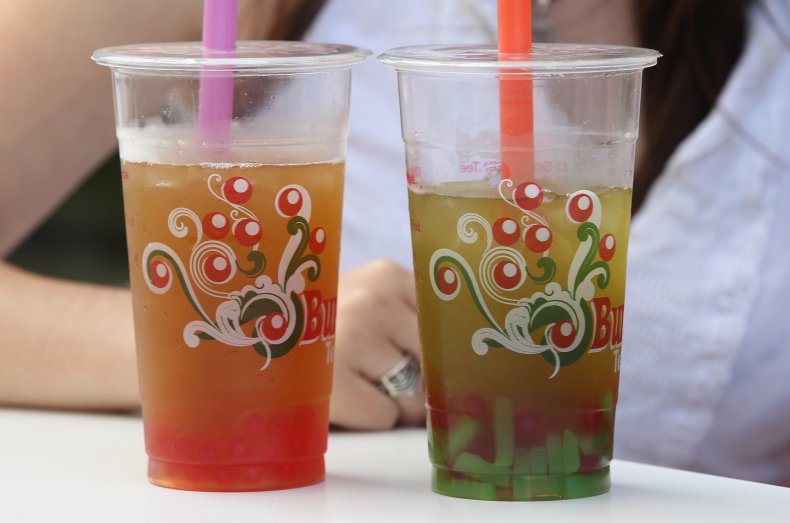Why Is There a Bubble Tea Shortage in the U.S?
First it was toilet paper, aluminum cans and ketchup. Now it's bubble tea's turn to be facing supply shortage in the U.S.
The drink, which originated in Taiwan, has become a huge worldwide success over the last decade. It fuses Asian teas with milk or fruit syrups and contains tapioca starch and a layer of tapioca balls, also known as boba, at the bottom.
"This is an industry-wide shortage," the owners of popular U.S. chain Boba Guys said in an Instagram video last week.
"Some boba shops are already out. Others will run out in the next few weeks. 99 percent of boba comes from overseas. [...] It will be in flux for several months until we get our next series of tapioca starch shipments."
Bin and Andrew, who run the Boba Guys shops in San Francisco, Los Angeles and New York, warned an "impending nationwide shortage" would hit the company and its fellow bubble tea producers.
"We have a big update on the shipping issues including an impending nationwide shortage on boba," they added. "Even though we operate our own factory in the United States, we are reliant on the shipping network to procure the raw tapioca starch that we make our boba with."
Tommy Huang, the senior sales manager at Leadway International—one of the U.S.' biggest suppliers—said the shortages could become evident from next week and could last for several months.
"In the next week or so, tapioca will be a luxury because no one is going to have it," he was quoted as saying by the San Francisco Chronicle. "It's going to take a long time to be able to say we will not have a shortage of tapioca."
MarketWatch reported the shortages were due to a massive shipping backlog on the West Coast, which was also affecting other supply chains depending on products being shipped to the U.S. from Asia.
Bubble tea is the latest item to join a long list of products that have faced supply issues since the coronavirus pandemic first hit the U.S. in March last year, leading to a nationwide lockdown being implemented.
As restaurants, pubs and bars closed, soft drink companies and breweries ramped up production of canned drinks to meet soaring demand by consumers who were now spending far more time at home. The increase in production led to a shortage of aluminium cans.
At the same time, flour became increasingly difficult to purchase as millions of Americans turned to baking during the early stages of lockdown and suppliers struggled to keep up with the increase in demand. The lockdown also led to a shortage of pepperoni, as consumption of takeaway pizzas soared with restaurants and cafes closed.
In April last year, due to pandemic-related issues including shifted consumer behavior and health and safety guidelines regarding indoor dining, restaurants across the U.S. began running out of ketchup packets.


